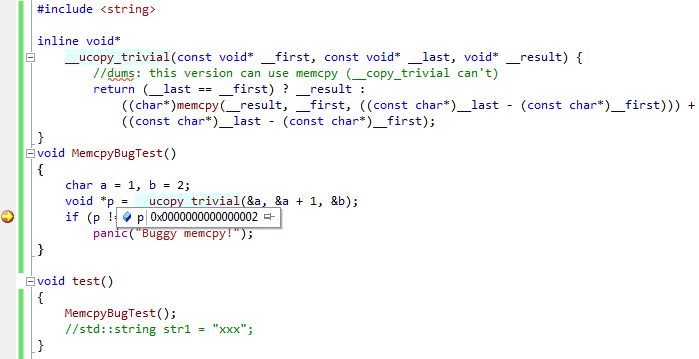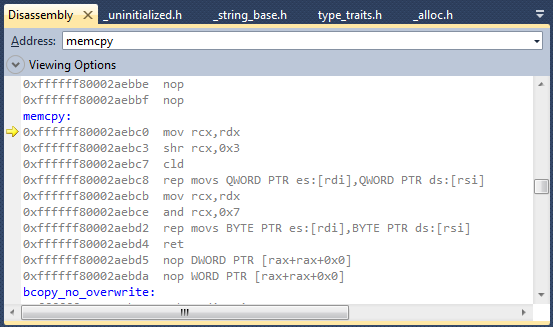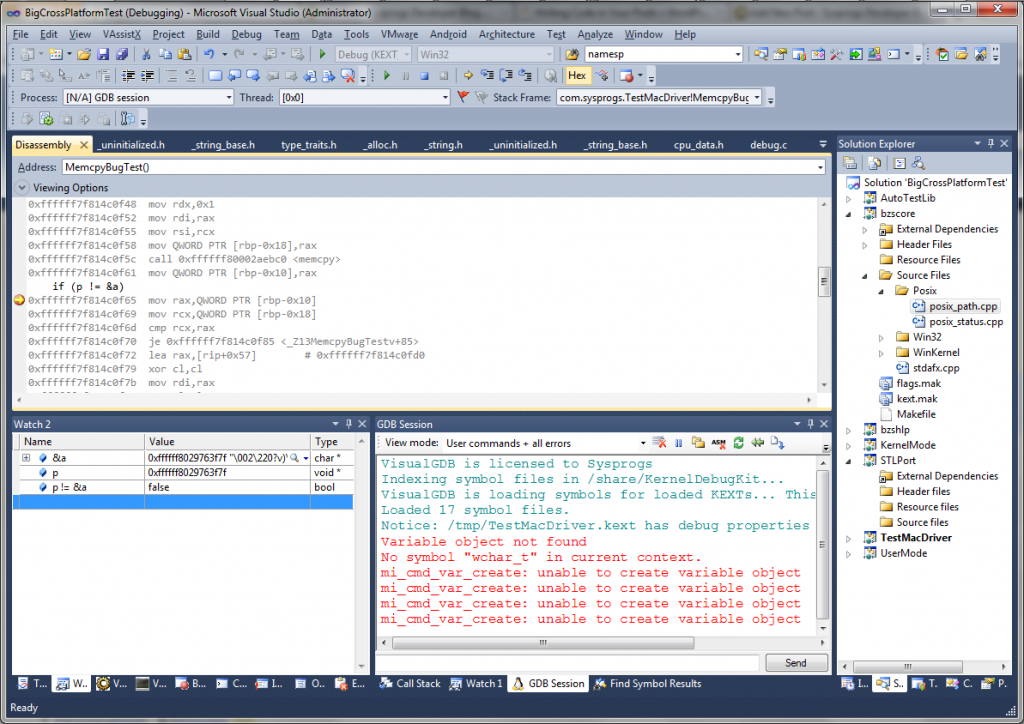I was just creating a truncated port of STLPort for MacOS kernel environment for one of our Mac drivers and stumbled upon a nasty bug. Any attempt to initialize an std::string immediately caused a kernel panic.
Investigating the problem revealed that the memcpy() function that is manually coded in assembly does not actually care about the return value. Makes sense, how often did you use the return value of memcpy()? I never did. Just until finding out that STLPort heavily does and crashes in case it’s wrong.
I’ve created a simple test case to reproduce the bug:
 The __ucopy_trivial() function that is supposed to return the pointer to the end of the destination array actually returns 0x02. Looking more into the memcpy() function shows that the authors have simply forgotten to do anything with the $rax register holding the return value:
The __ucopy_trivial() function that is supposed to return the pointer to the end of the destination array actually returns 0x02. Looking more into the memcpy() function shows that the authors have simply forgotten to do anything with the $rax register holding the return value:
 That’s consistent wit the contents of the xnu-1699.22.81/osfmk/x86_64/bcopy.s file:
That’s consistent wit the contents of the xnu-1699.22.81/osfmk/x86_64/bcopy.s file:
/* void *memcpy((void *) to, (const void *) from, (size_t) bcount) */ /* rdi, rsi, rdx */ /* * Note: memcpy does not support overlapping copies */ ENTRY(memcpy) movq %rdx,%rcx shrq $3,%rcx /* copy by 64-bit words */ cld /* copy forwards */ rep movsq movq %rdx,%rcx andq $7,%rcx /* any bytes left? */ rep movsb ret
Oops, what %rax? 🙂
I believe one of the reasons reason why this bug has not been immediately discovered is because in most of the cases when you call memcpy(), gcc will use the $rax register to hold the first argument before placing it to $rdi. Thus if you try to reproduce the bug with a simple call to memcpy() alone, you won’t see any problem:
The solution
The solution is simple: just make a wrapper around memcpy() and put it somewhere in your global header files so that the memcpy()-related code will actually use it:
static inline void *memcpy_workaround(void *dst,
const void *src, size_t len)
{
memcpy(dst, src, len);
return dst;
}
#define memcpy memcpy_workaround
